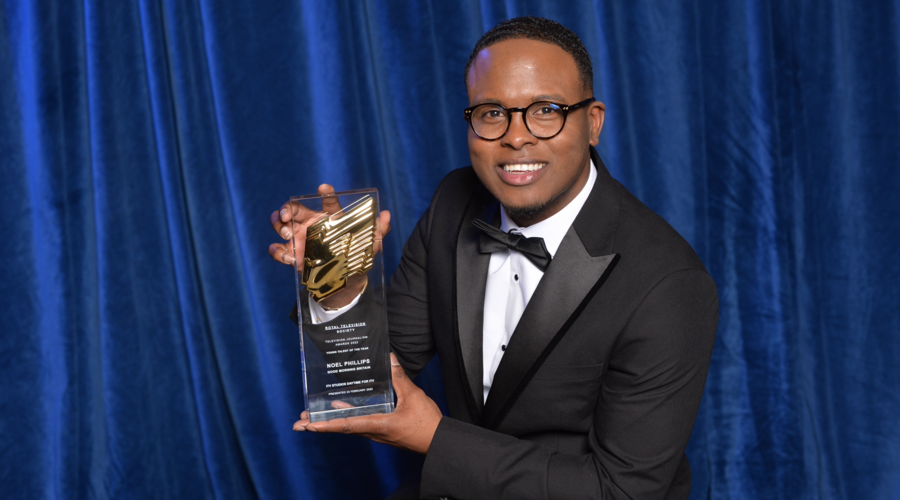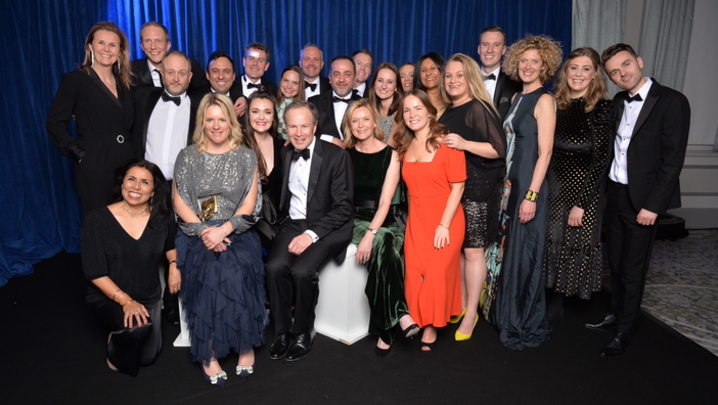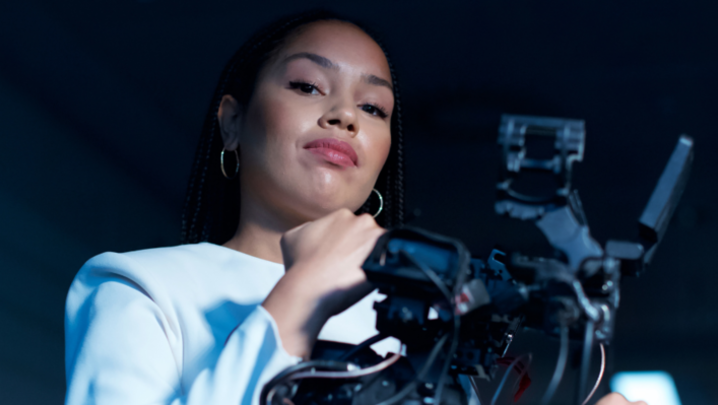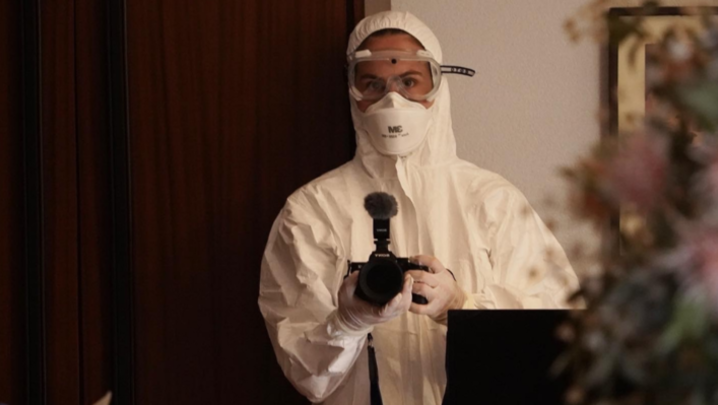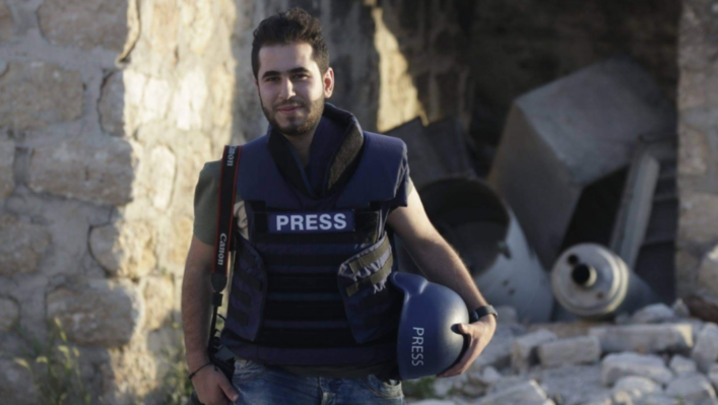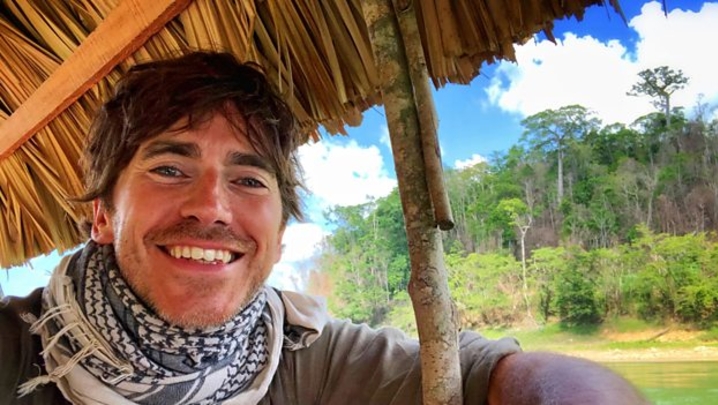Good Morning Britain’s only North American correspondent Noel Phillips talks about the problem with fake news, the hostility of the US police and his nomination for the Young Talent of the Year Award at the RTS Television Journalism Awards.
Since moving to the US, Phillips has covered a range of topics, from Prince Harry and Meghan Markle’s bombshell Oprah interview to speaking to Britney Spears’ family about her restrictive conservatorship, to the heightened race relations during the murder trial of Derek Chauvin and subsequent shooting of Daunte Wright.
We spoke to Noel before his RTS Television Journalism Award win in the Young Talent category.
How does it feel to be nominated for an RTS Young Talent the Year Award?
It's such a privilege to be recognised, I've only been in my role for 10 months. I started at GMB last year, moved to America in the March and it's been nonstop, it’s relentless. It's been so incredible having a front row seat to some really incredible stories.
What was it like starting a new role at GMB and moving to the other side of the world?
I packed my entire belongings into four suitcases and started a brand-new life. Understanding different currencies and the vast range of stories that we have to be across every day was quite mind-blowing.
The big thing for me is talent needs opportunity, Neil Thompson, the editor of GMB, saw something in me and had a very strong belief in me that I could do the role.
As of right now, I'm the youngest foreign correspondent in the UK and one of the only black foreign correspondents working for a major news organisation. When you put it into context like that it's quite a heavyweight on one’s shoulders, hopefully people see that I look like them and are inspired and maybe want to try and follow in my footsteps.
I never doubted that I could do it, but it's been amazing getting to know America and the people, the culture, the country. I feel like I'm only just getting started.
Do you find a big difference in reporting in the UK compared to the US?
Before I joined GMB, I was at Sky News reporting on UK domestic stories, I’ve gone from that to covering 50 states. We're covering everything from wildfires, to politics, to mass shootings, to civil unrest, to extreme weather conditions, it's just so vast and you’ve got to have the ability to change gears a lot.
It's a bit of a culture shock when you move over and you see there are more guns in America than there are major supermarkets, seeing people carry a firearm in the supermarket is never easy to get used to, but it's so interesting.
Growing up, did the lack of diversity in the news industry make you feel hesitant about entering the industry and the hurdles you’d face?
I went to a comprehensive school and had to graft and put a lot of work in to get to where I am now.
People go down different paths and sometimes you take the lonely road and you’re really focused and swerve all the distractions to get to where you need to and GMB gave me an opportunity. Talent needs opportunity and they gave me a shot and it's been so life-changing.
You reported on Prince Harry and Meghan Markle and their interview with Oprah, were you expecting them to make such shocking revelations? What was the mood over there during that time?
Before I arrived I had a fascination with Harry and Meghan. I covered their Royal Wedding whilst working for the BBC. I was at Windsor behind the scenes seeing it all unfold and to me, it felt like a fairy tale, I didn’t know them at all but I felt very much like I was involved in their wedding, it was like seeing your two mates getting married.
The Oprah interview they did and the fallout was huge, I think the American public applauded Harry and Meghan for taking the stand and speaking out. I think that they are doing what they believe in, whether we agree or not, and they do divide opinions.
In the UK, the opinion is that they just need to go away and be quiet, whereas in America, they are mega celebrities, they are A listers, hanging out with the likes of Jay Z and big-name celebrities.
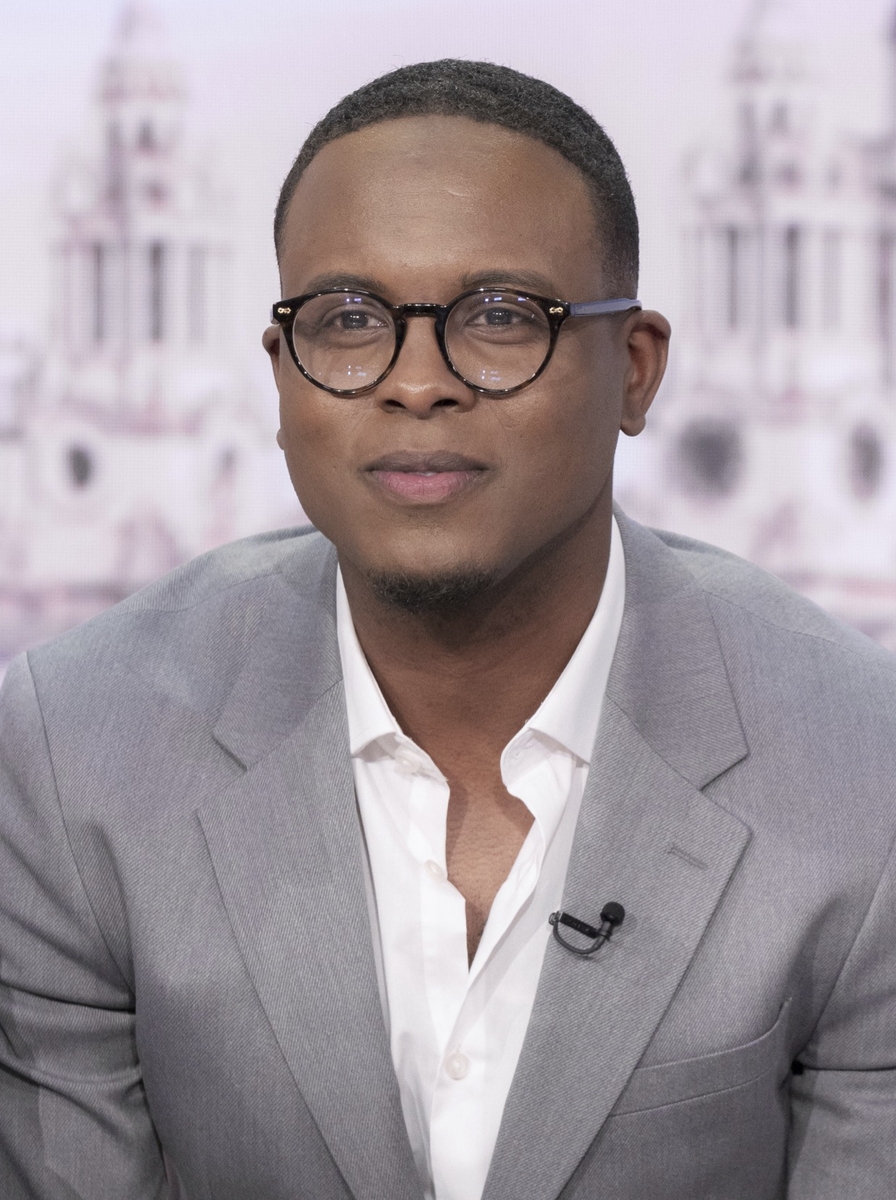
What was it like reporting from the Brooklyn Centre in Minnesota during the protests over the death of Daunte Wright?
It was so unexpected we were there to cover George Floyd and the police officer charged and convicted of his murder, Derek Chauvin. And during the middle of that trial, Daunte sadly died a few miles away from where Derek Chauvin was being trialled. At the same time, me and the crew who were covering the protests were detained by the police.
They arrested us, they threatened me with deportation, for the simple fact of refusing to get off the streets whilst they were firing tear gas and rubber bullets at protestors and we were there wanting to document that, but they didn't like that at all. It was really intimidating, but I have no regrets, and I'm so happy that we stuck in there.
We were one of the first media outlets to get an interview with Daunte’s family, we spoke to his brother in the aftermath of his death. I think one of the reasons why they spoke to us is because they looked at me and thought, ‘Okay, he probably gets it, he’s the same age as Daunte, looks like Daunte’. When I look back at the protests, we were faced with really difficult situations because we were doing a piece to camera and behind us a few guys started shooting and we had to take cover.
There were so many layers of complexity, we felt we had to peel away in order to try and portray back to a British audience what was happening and why people back home needed to care.
Do you think the police were so aggressive with you as the media because they didn't want that negative press or that coverage at the time?
In 2020, I was at Sky News reporting on the BLM protests in London outside Downing Street and we had plenty of face to face interactions with the police. The police in the UK are obviously very different to the police in the US.
In the UK, they allowed protesters the right to protest and for journalists to cover that, whereas in America there was a clear attempt by the police to silence us and to stop us from reporting, we were treated very much like protesters, which was quite concerning.
I'm a journalist by profession, but at the same time, I’m a young black man. You're trying to portray to the audience this is why people are so angry in this country, this is why people are out every night.
A lot of people viewed it as just angry thugs on the streets, but the reality was that these are black guys who felt like they had a right to speak out, they had a right to not be harassed by the police, and should they be stopped by the police, not to die in their custody.
I used my own personal experience, before leaving the UK I was stopped and searched on multiple occasions and that informed my reporting. I wanted to talk to the police and see things from their perspective and what were they faced with. I had two different sides of the story that I was balancing and that really did push me.
How do you think that news outlets can tackle the fake news that is out there and encourage people to come to news sites which are trusted sources?
It is so important that what we put out is accurate, fair and balanced, which will allow people to come back to us for facts and insightful reporting. We're seeing a huge decline in public trust in traditional journalism, but it's down to us as individuals and news outlets to promote our industry and remind people that we can be trusted and they don't have to go off into the fringes to find news. We've got to continue pushing the envelope and produce high quality journalism in order to build public trust without legitimising those platforms that may want to spread misinformation as well and fake news.
What kind of advice would you give to someone starting out in journalism?
You work hard no matter the colour of your skin, the area you grew up in, or whether or not you come from a privileged background. If an opportunity is given to you, don't believe that you can't do it, challenge yourself and you can do it and make so much of a difference.
I grew up in a council home with a single mom and my siblings, and have been able to, at a very young age, focus and achieve what I wanted to achieve.
If you could interview anyone alive or dead, who would it be?
I think the most interesting person on the planet right now, and a lot of people may disagree, is Kanye West. He’s just so unique and I feel like he is such a misunderstood character. I think sitting down with him for 20 minutes for a cuppa, I could probably deal with everything that's going on in Kanye's world. This is the same guy who may potentially run for president one day, he is someone who keeps pushing the boundaries, keeps pushing the norms and that in itself makes him really interesting.
Noel Phillips won the Young Talent of the Year award at the RTS Television Journalism Awards 2022. Noel was nominated alongside Marianna Spring and Mickey Carroll.

